EDITED v. 60
Measure footprint of open LLMs
Benchmark Apertus, compare with other models, and find strategies for efficient prompting.
| 3 | 54 | 44 |
|---|
Research
Evaluation of Project
Technical Functionality: 4 (Excellent)
The project has demonstrated a significant step towards the technical goals by proposing a measurement framework and providing data about expected resource consumption. However, it has not implemented a fully detailed and interactive dashboard or prompting strategies. Instead, it tentatively suggests approaches that could be further developed with some coding effort. A higher score would require more ambition in demonstrating concrete, coded functionality.
User Experience: 3 (Good)
The project creators have incorporated design concepts into a visually appealing presentation. However, further development of a user-friendly interface and interactive dashboard implementation are needed. The user flow is not yet clear, because the current mockups are static and do not show full functionality.
Skillful Use of AI: 3 (Good)
The team shows a intent to apply AI through dashboards for measuring and prompting, but only at the idea level. Actual AI use or demonstrations (which can range from machine learning models to natural language processing strategies for prompting) have not been implemented in detail. For a higher rating, they should provide working code, examples, or at least detailed algorithms.
Uniqueness / Creativity / Fun Factor: 2 (Fair)
While the goal of making AI more sustainable is creative and timely, the project’s approach does not entirely break new ground. Some parts may be similar to existing works focused on sustainable computing or AI ethics. The potential for a viral "wow" factor or novel approaches could be improved with more ambitious designs in measurements or impact reduction strategies.
Potential / Market Impact: 4 (Excellent)
The project addresses a critical and increasingly important subject: sustainable AI, which has both high market opportunity and could offer Switzerland a leading edge in responsible technology practices. However, realizing this potential depends on effective implementation of the proposed strategies, which, given the lack of concrete prototypes or fully developed dashboards, remains conceptual.
Key Feedback for Improvement:
- More detailed and interactive documentation, especially showing real codebase snippets or demo links.
- A dynamic, interactive dashboard prototype or mockup that simulates measuring and responding to model usage.
- Examples or demos of AI prompting strategies to show how they could reduce environmental impact.
- A clearer, step-by-step user flow to demonstrate practical usage.
The project is off to a strong start conceptually but requires more concrete, functional demonstrations and applications to reach the "excellent" level in all categories.
Note: This is a simulated evaluation and not based on an actual project. The scores and feedback are examples of how a judge might evaluate based on the given criteria.
🅰️ℹ️ generated with APERTUS-70B-INSTRUCT
Event finish
back to "old" view of slides, this one works at least
move to readme
presentation
update presentation
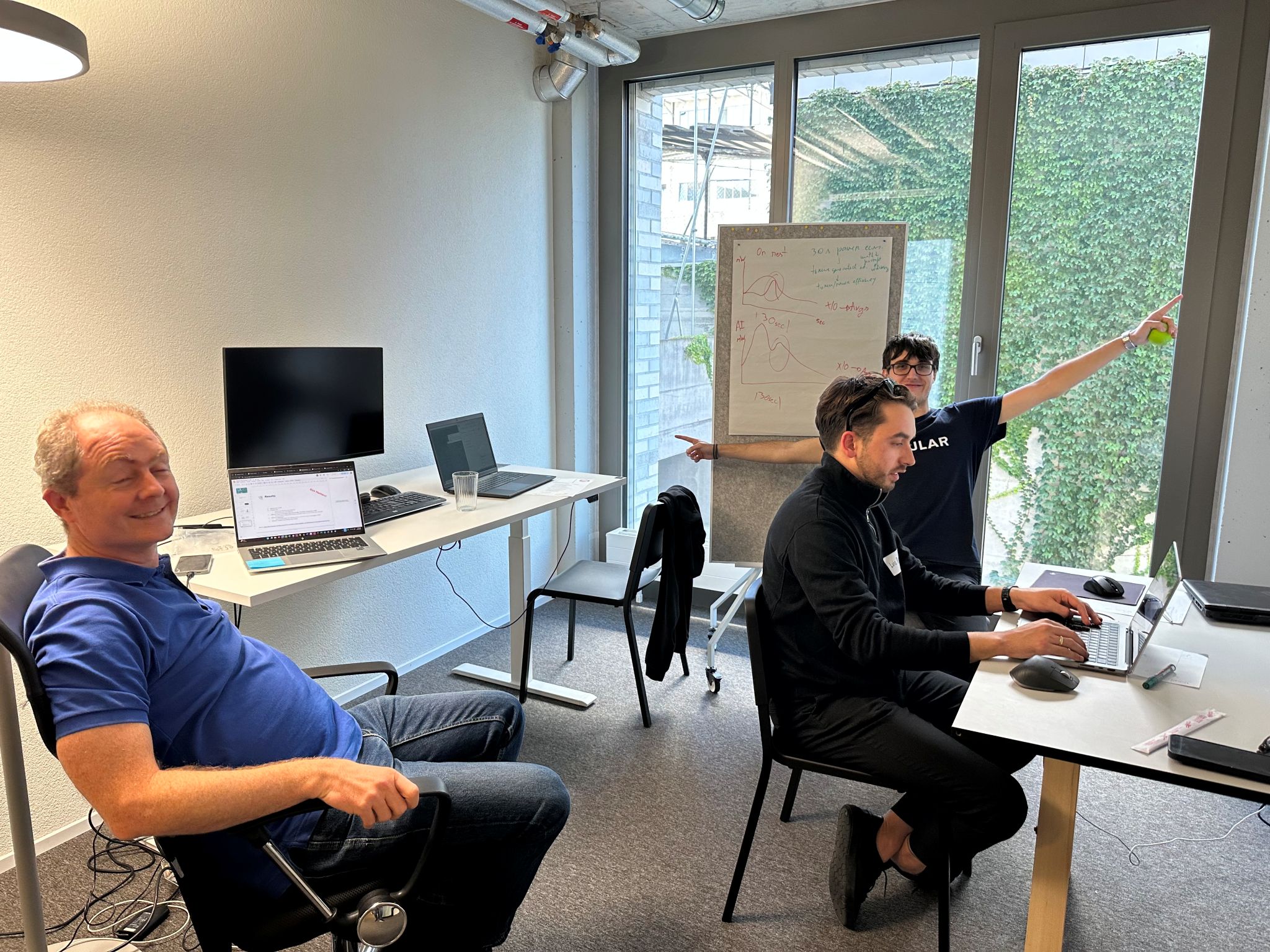
formatting
added report and data
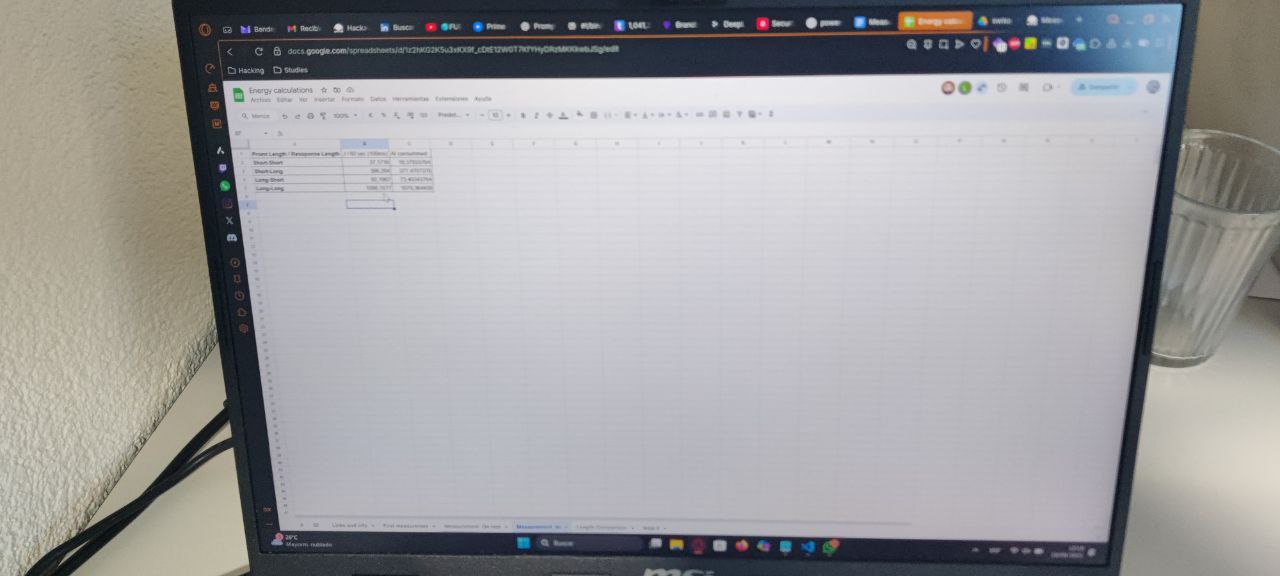
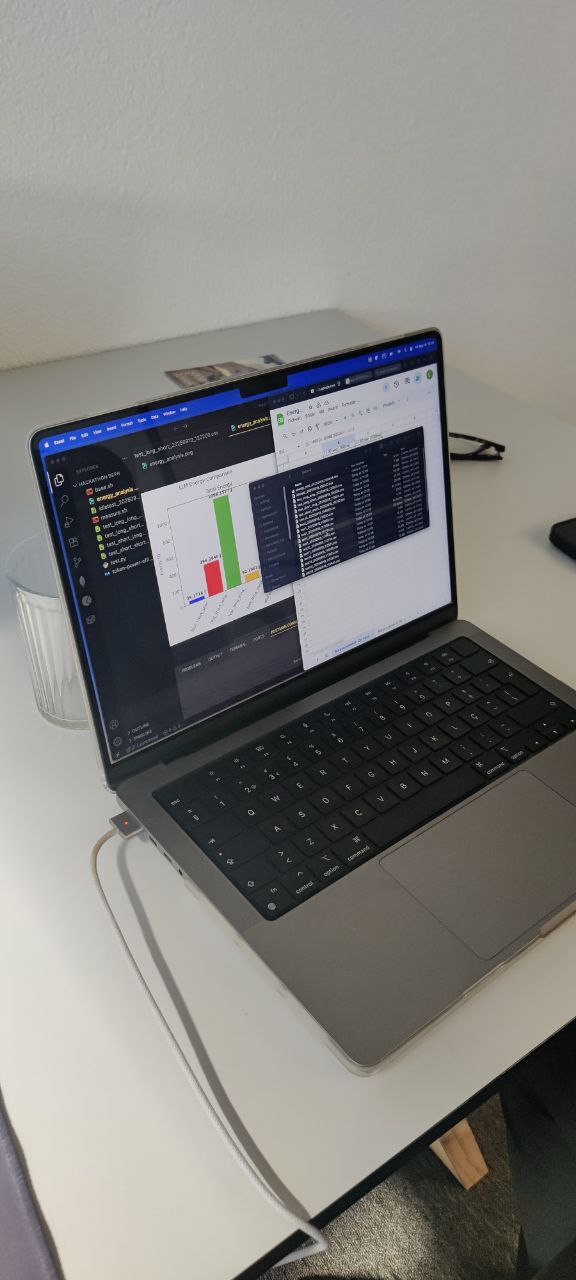
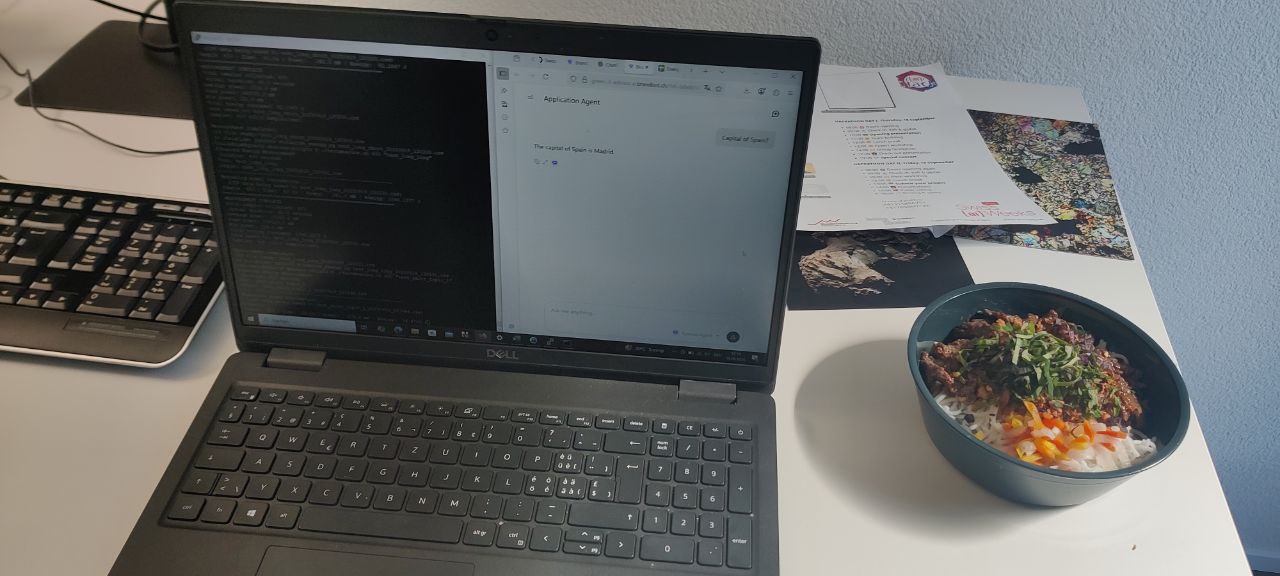

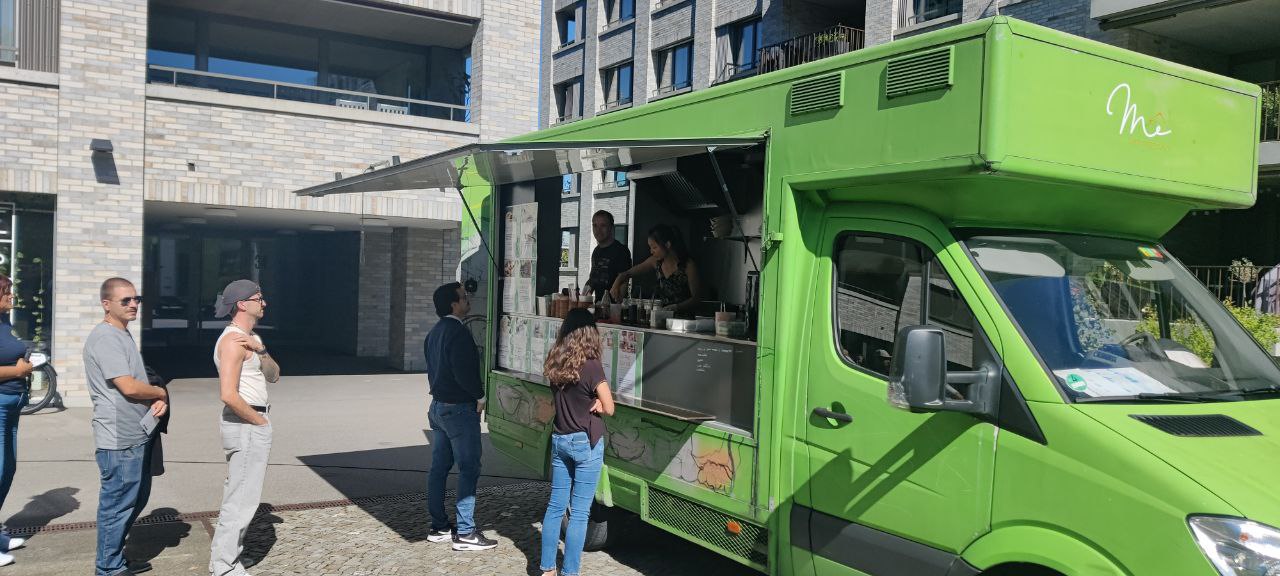
we have first results, and lunch!
JOINED
Our script it's working :D, we need the visualization https://codeshare.io/ay7NPe
Fail of our script #23 https://codeshare.io/G6q4pp Getting close and some automatization
Fail of our script #22 https://codeshare.io/2p8A0V
Fail of our script #21 https://codeshare.io/5v7wEK
Fail of our script #20 (We start at 20 because we don't have the first 20 saved.) https://codeshare.io/G8qADE
better slide link
link to presentation
We change the way of measuring to do it more accurately (More info in the documentation)
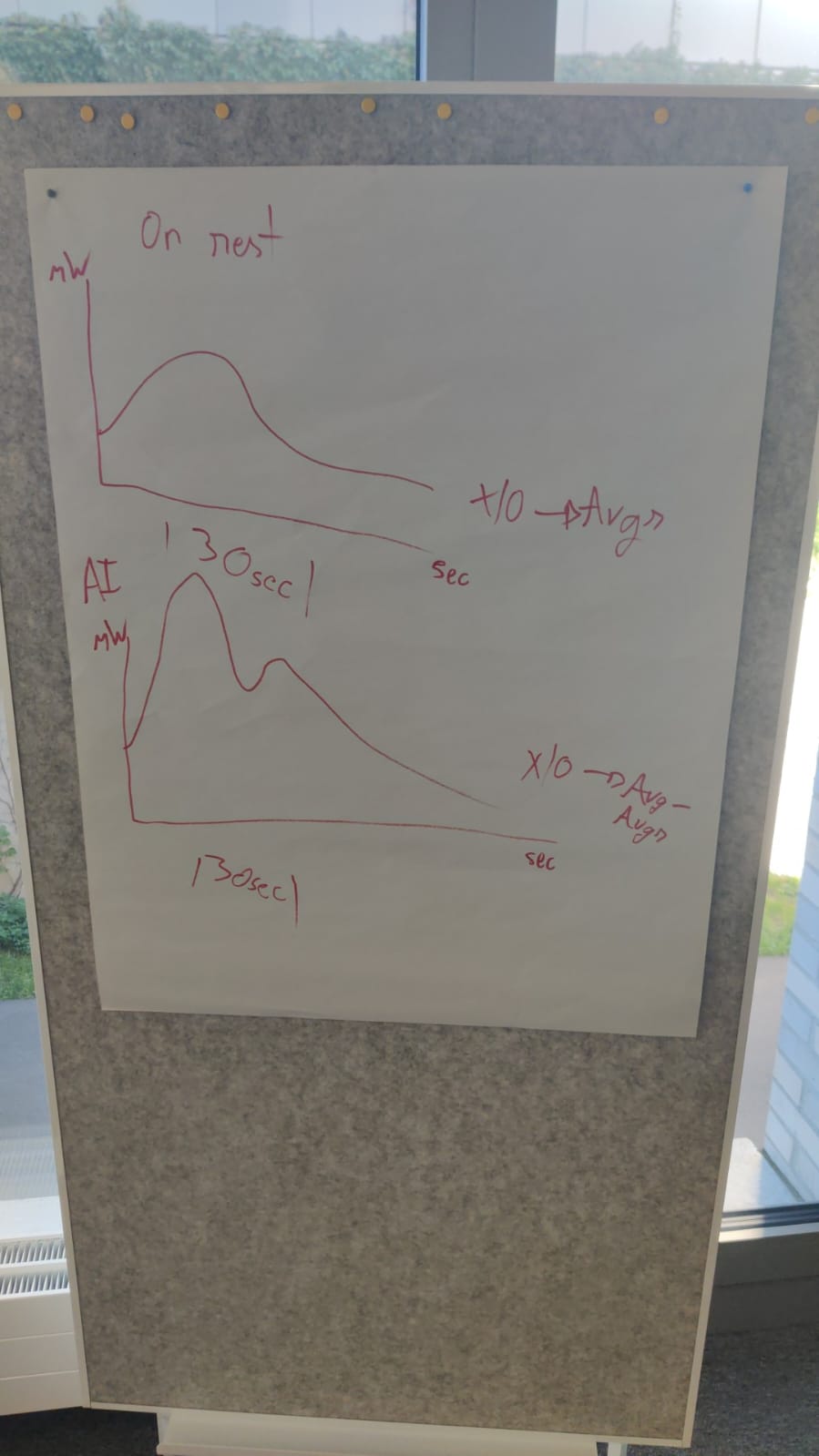
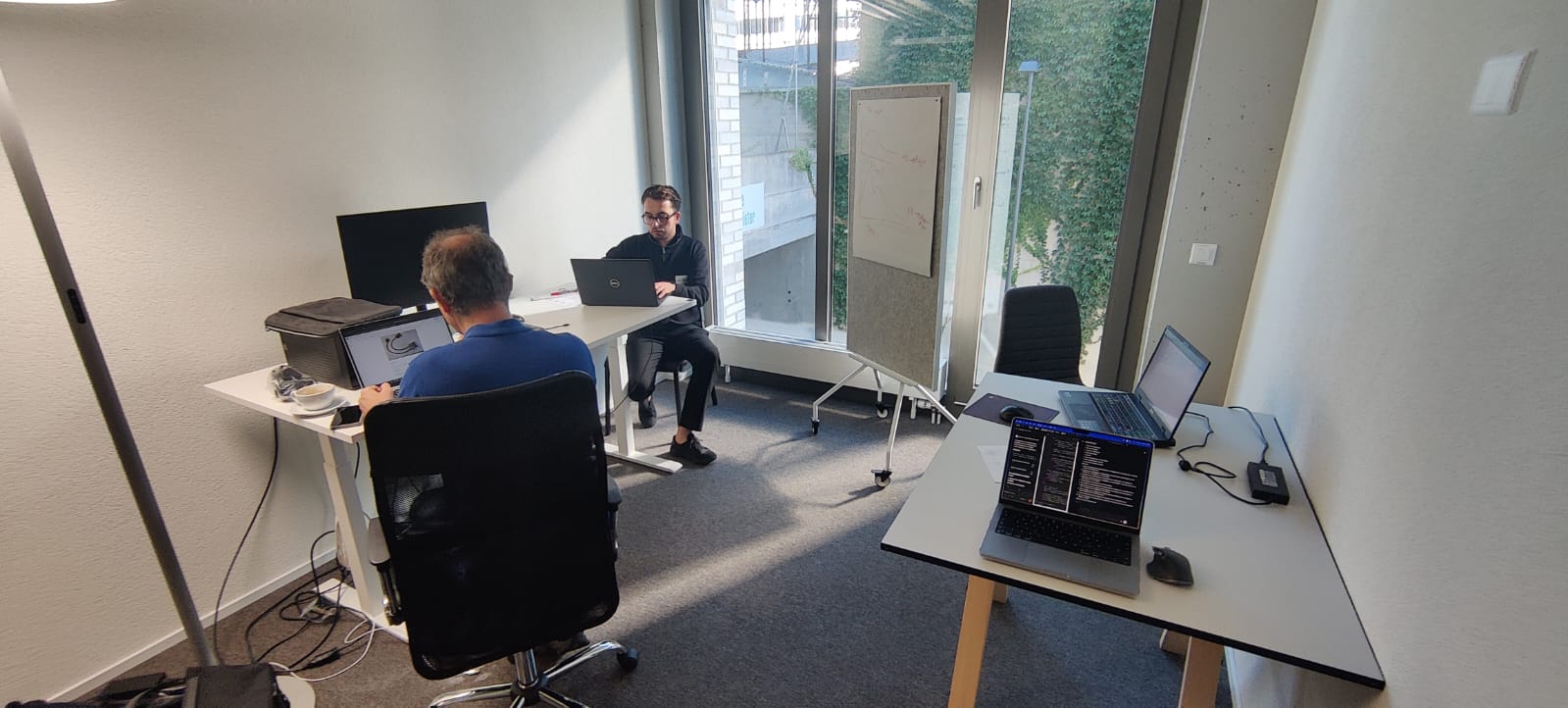
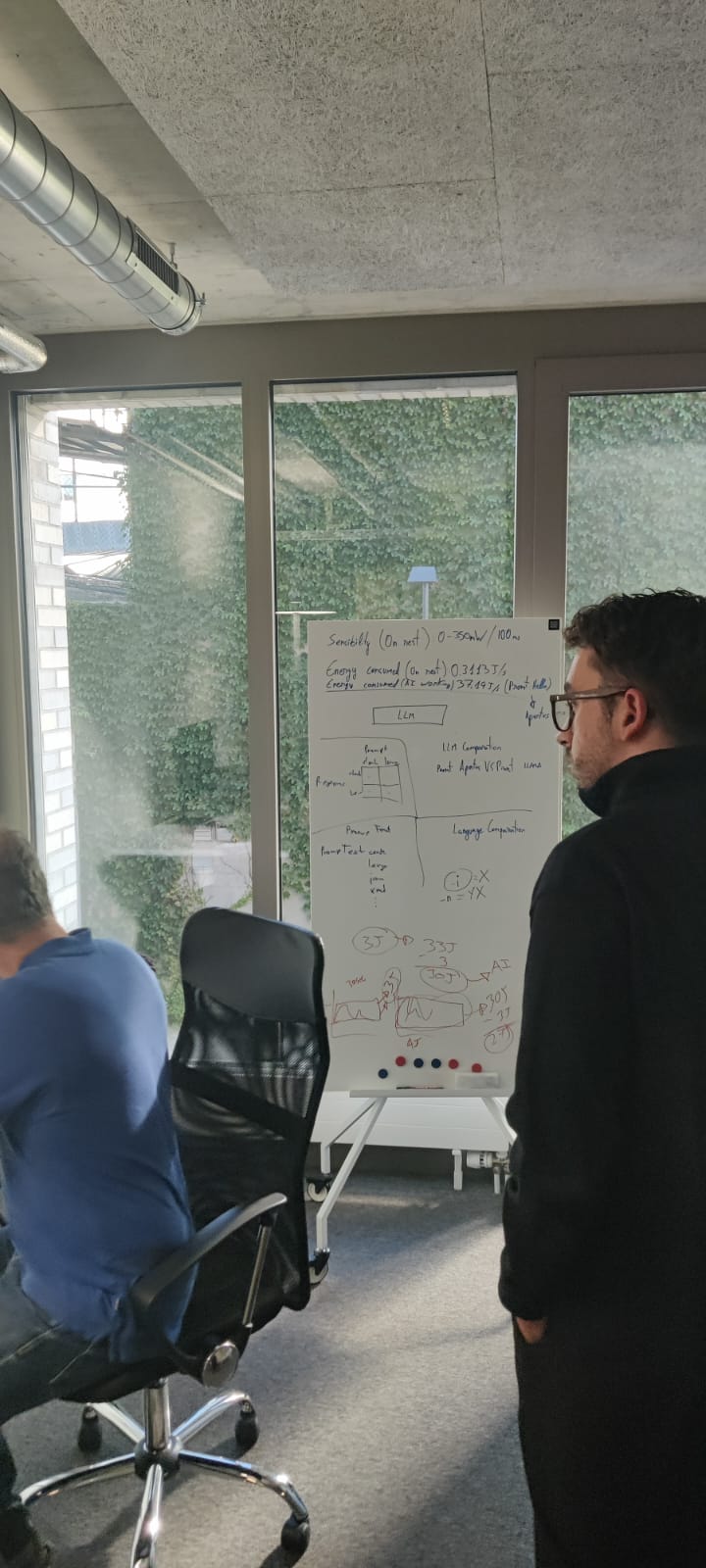
Started writing the project report and created a google sheet as a data repository.
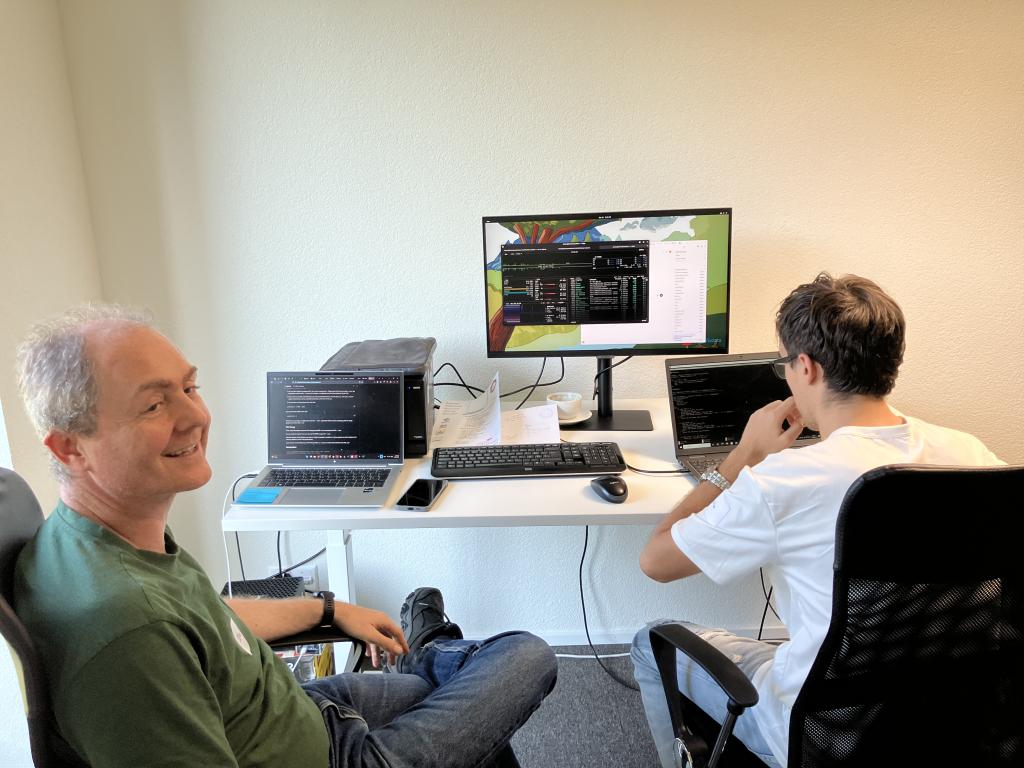
Project
After a few hours of work we have managed to collect hardware power metrics of a testbed server in the Begasoft cloud. We need to make another script, because we currently only can read the average energy use. Still struggling with getting Apertus to work on a local NVIDIA machine, kinda wish we had a Mac ;-) j/k
JOINED
Start
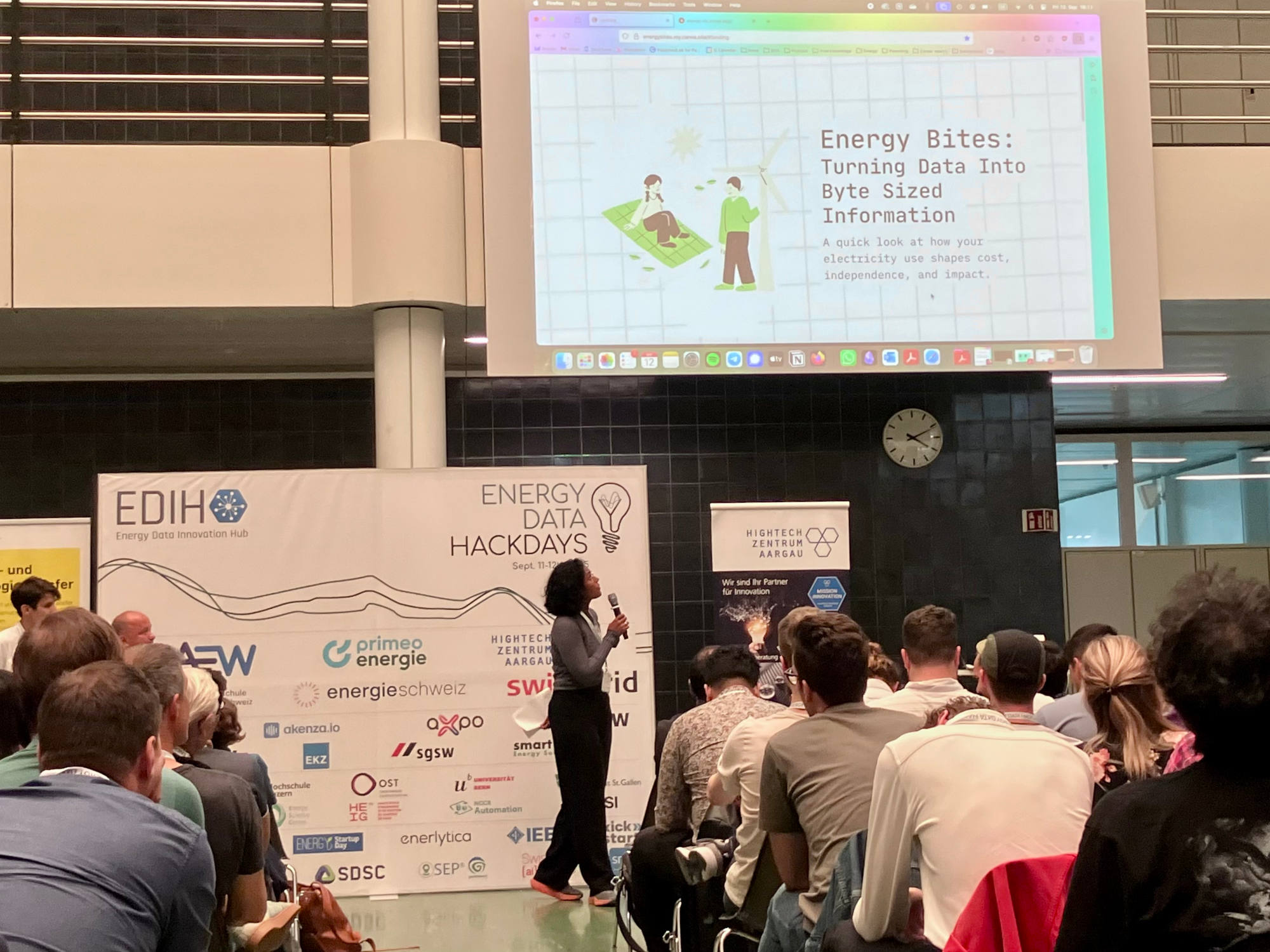 Greetings from the Energy Data Hackdays, first of the Swiss {ai} Weeks hackathons. Try the 💡 Energy Bites demo here
Greetings from the Energy Data Hackdays, first of the Swiss {ai} Weeks hackathons. Try the 💡 Energy Bites demo here
green prompting paper
rewrote for remote access to Rig (probably no physical measurement possible). improvement primarily via prompting.
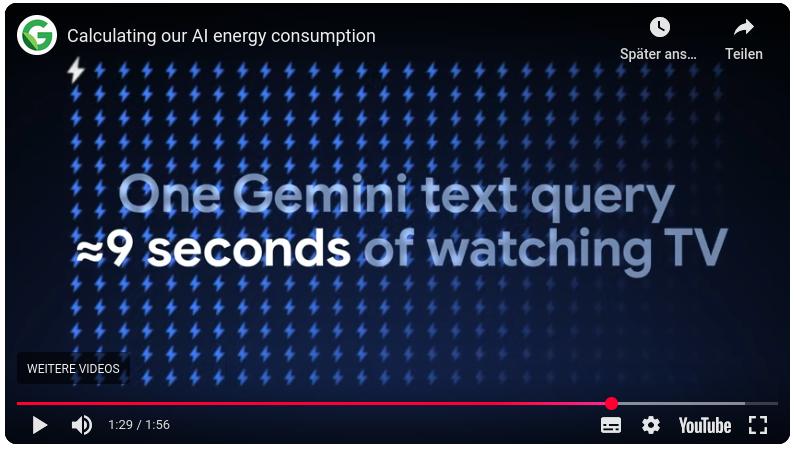 Google has just released a technical paper on the energy impact of an AI prompt. (Technology Review, Hacker News)
Google has just released a technical paper on the energy impact of an AI prompt. (Technology Review, Hacker News)
added measuring guidelines to outcomes
focus on inference, minor corrections
Hackathon Bern
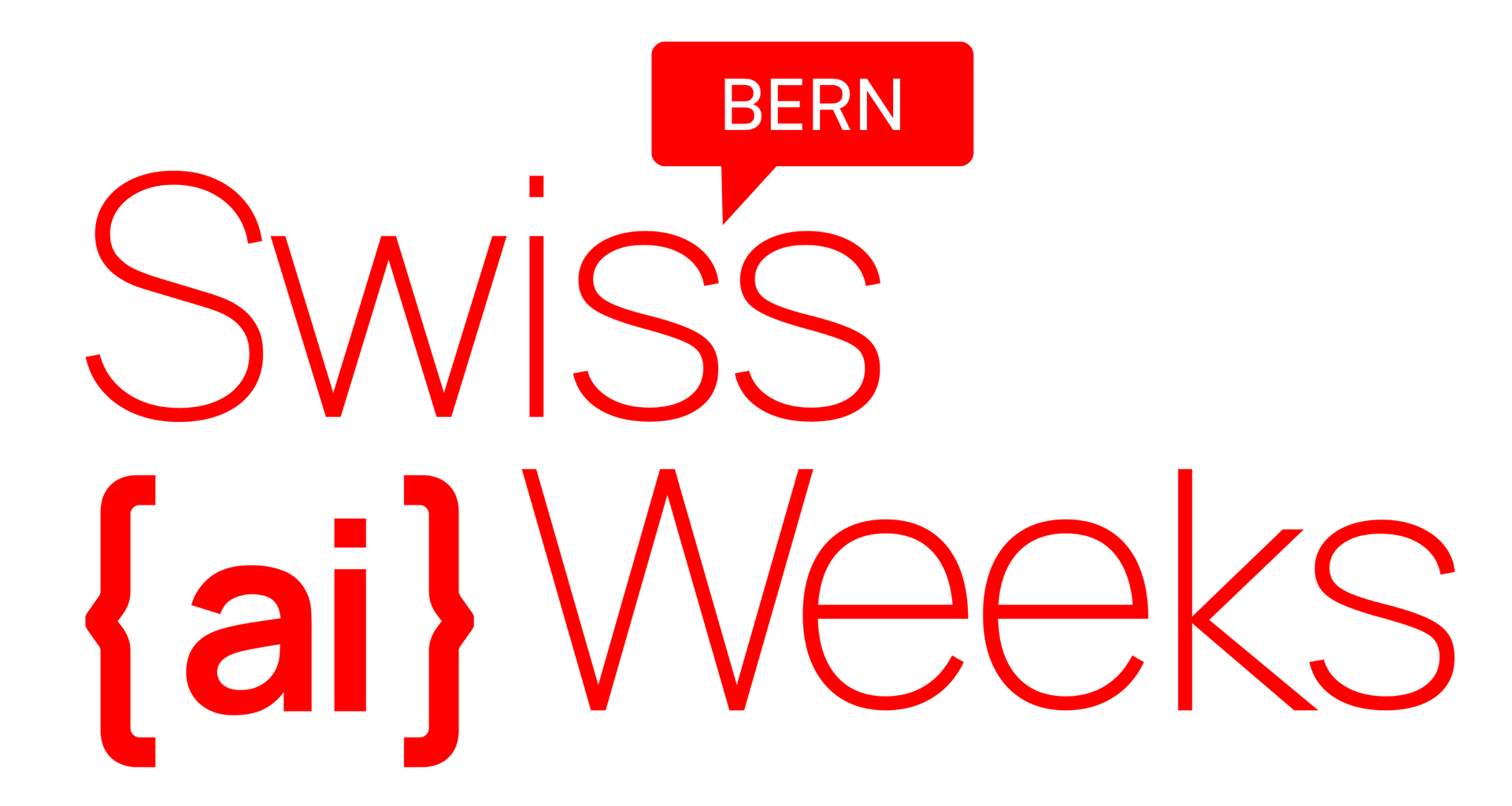
📚 Project Repository Created!
Just published our hackathon documentation: "Measuring LLM Energy Footprints"
What we built:
Key finding: Response length drives energy consumption way more than prompt complexity.
Fun discovery: Portuguese uses 20% more energy than other languages... as a Portuguese myself, I'm not sure if I should be proud or concerned! 😅
Repository: https://github.com/luisantoniio1998/Measure-footprint-of-open-LLMs
Big thanks to the swissAI team for organizing such an amazing event! Special shoutout to Oleg and everyone who made this hackathon possible. Great energy (pun intended) and fantastic collaboration throughout the weekend.
Thanks to my teammates Agustín and Stefan for the excellent teamwork! 🙌
#swissAI #LLMenergy #Hackathon